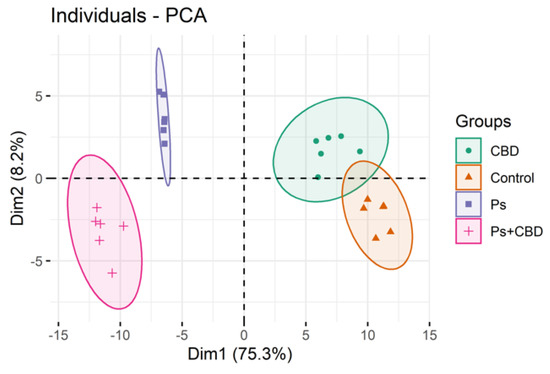 “UVB phototherapy is treatment for psoriasis, which increases phospholipid oxidative modifications in the cell membrane of the skin. Therefore, we carried out lipidomic analysis on the keratinocytes of healthy individuals and patients with psoriasis irradiated with UVB and treated with cannabidiol (CBD), phytocannabinoid with antioxidant and anti-inflammatory properties.
“UVB phototherapy is treatment for psoriasis, which increases phospholipid oxidative modifications in the cell membrane of the skin. Therefore, we carried out lipidomic analysis on the keratinocytes of healthy individuals and patients with psoriasis irradiated with UVB and treated with cannabidiol (CBD), phytocannabinoid with antioxidant and anti-inflammatory properties.
Our results showed that, in psoriatic keratinocytes phosphatidylcholine (PC), phosphatidylinositol (PI), phosphatidylserine (PS), and ether-linked phosphoethanolamine (PEo), were downregulated, while SM (d41:2) was upregulated. These changes were accompanied by an increase in negative zeta potential, which indicates translocation of PS to the outer layer of the membrane.
CBD treatment of psoriatic keratinocytes led to downregulation of PC, PS, and upregulation of certain PEo and an SM species, SM (d42:2), and the zeta potential. However, UVB irradiation of psoriatic keratinocytes resulted in upregulation of PC, PC plasmalogens (PCp), PEo, and a decrease in the negative zeta potential. The exposure of UVB-irradiated cells to CBD led to a decrease in the level of SM (d42:2).
Our results suggest that CBD induces pro-apoptotic mechanisms in psoriatic keratinocytes while simultaneously improving the antioxidant properties and preventing the loss of transepidermal water of keratinocytes of patients irradiated with UVB. Thus, CBD has potential therapeutic value in the treatment of psoriasis.”
https://pubmed.ncbi.nlm.nih.gov/32916896/
https://www.mdpi.com/1422-0067/21/18/6592

